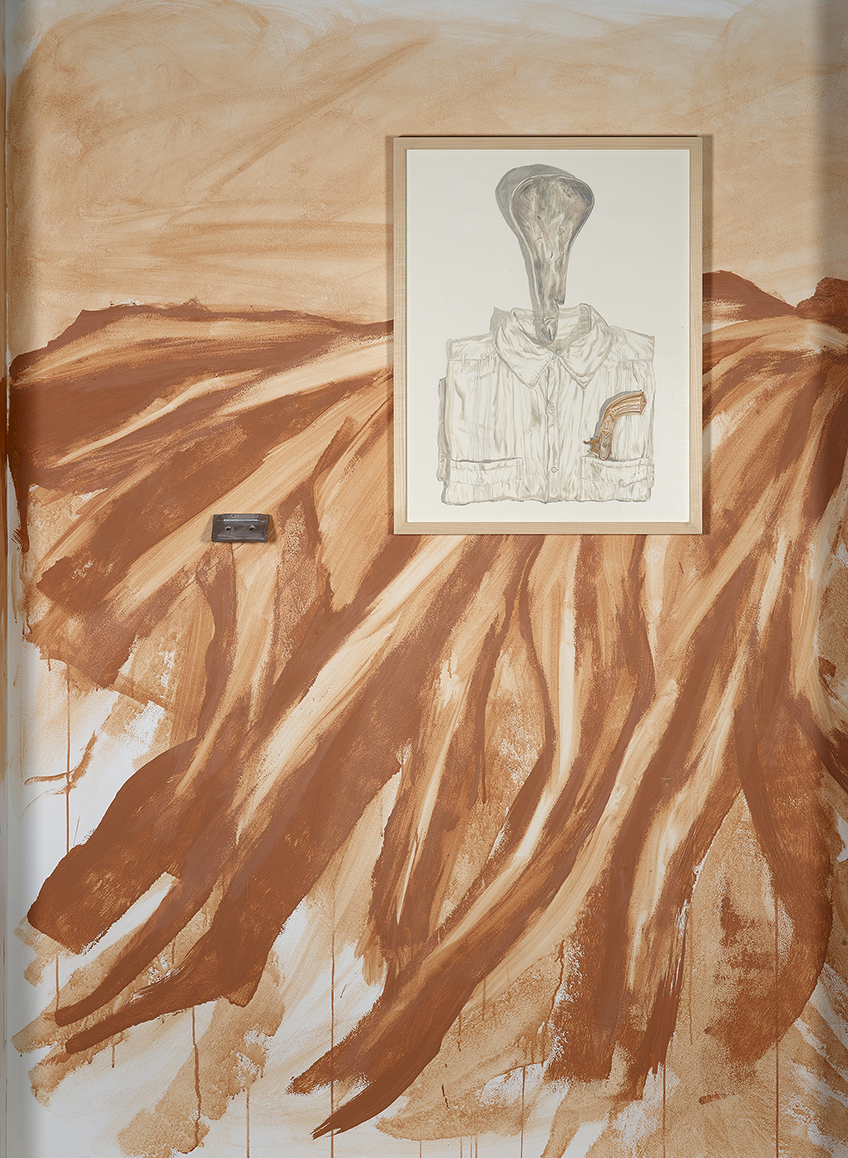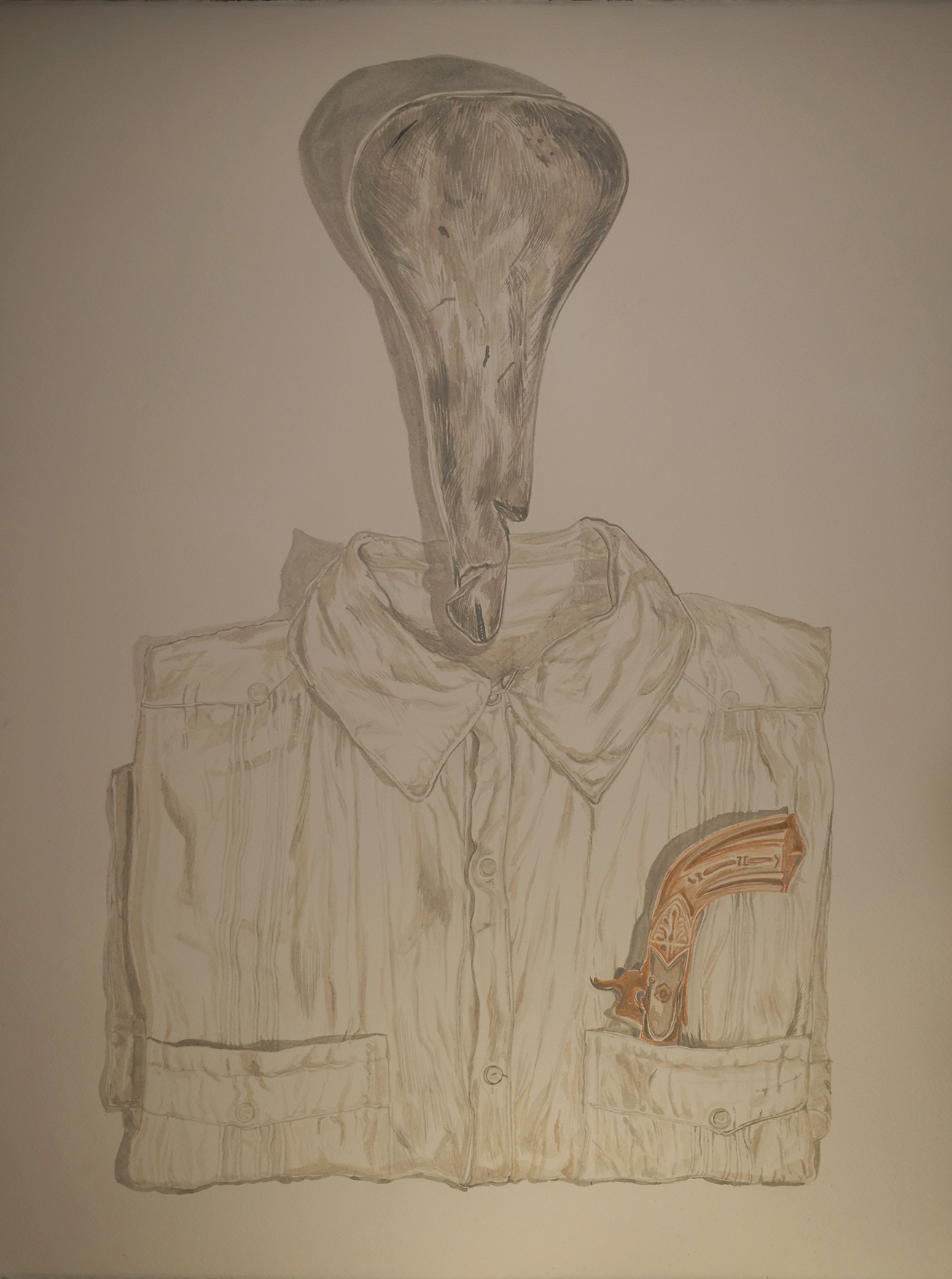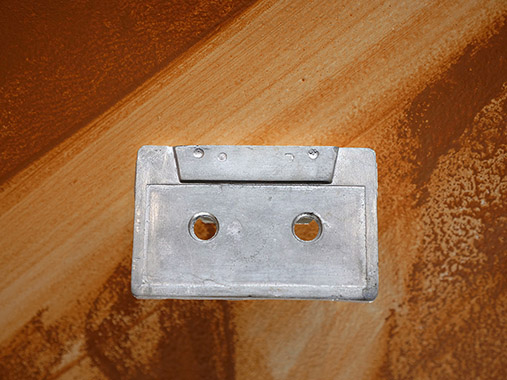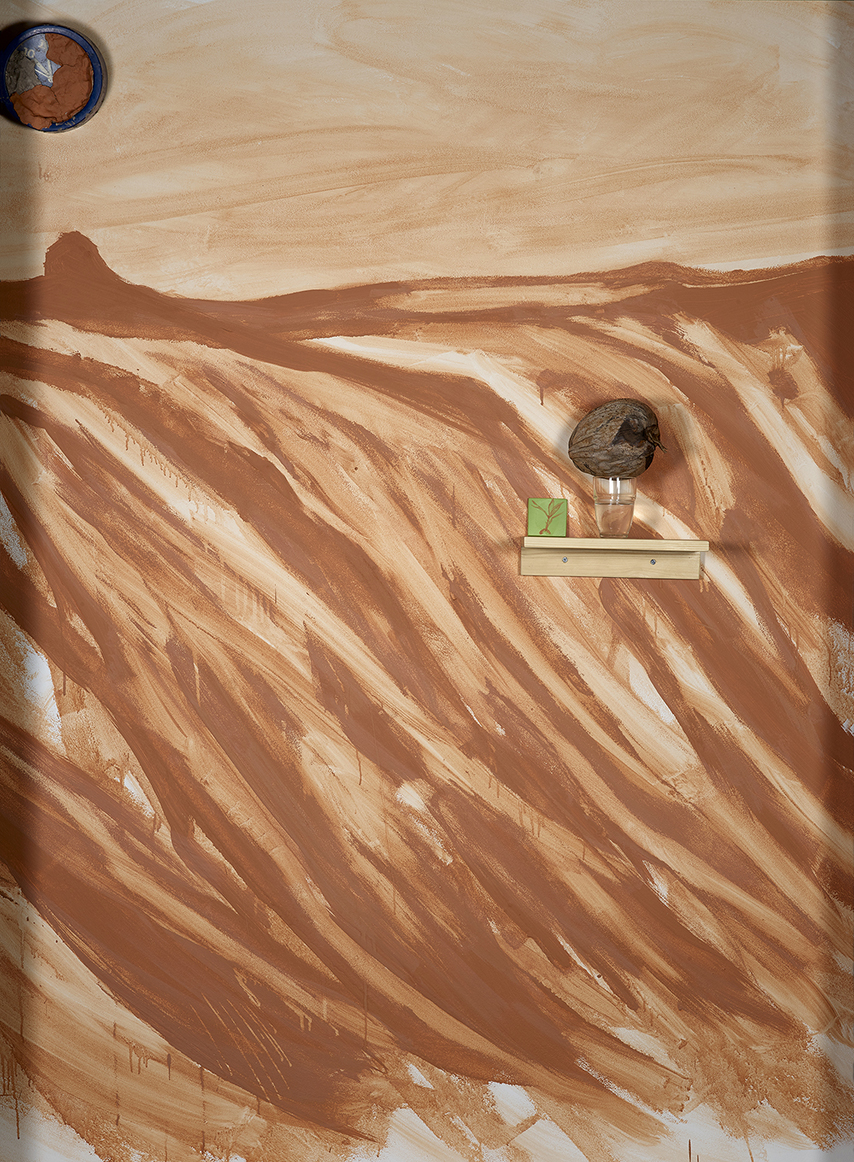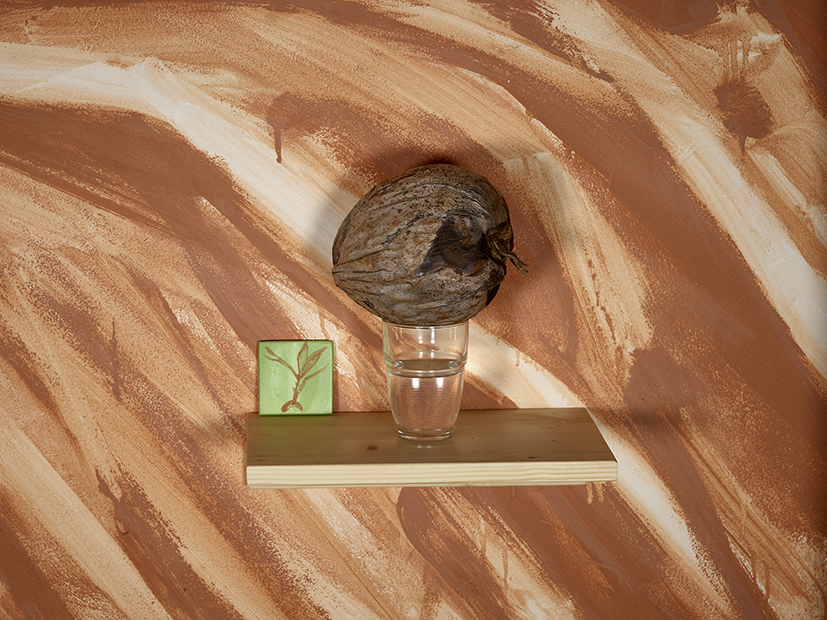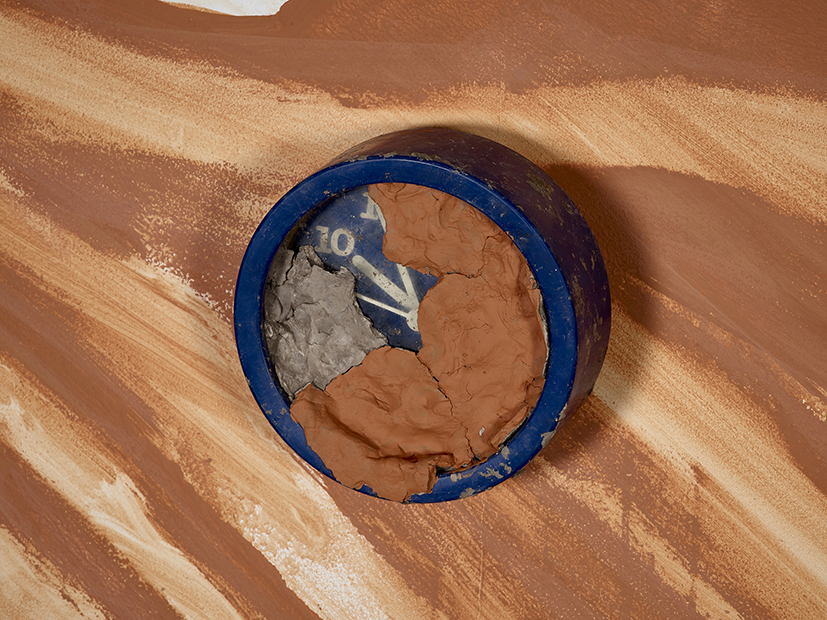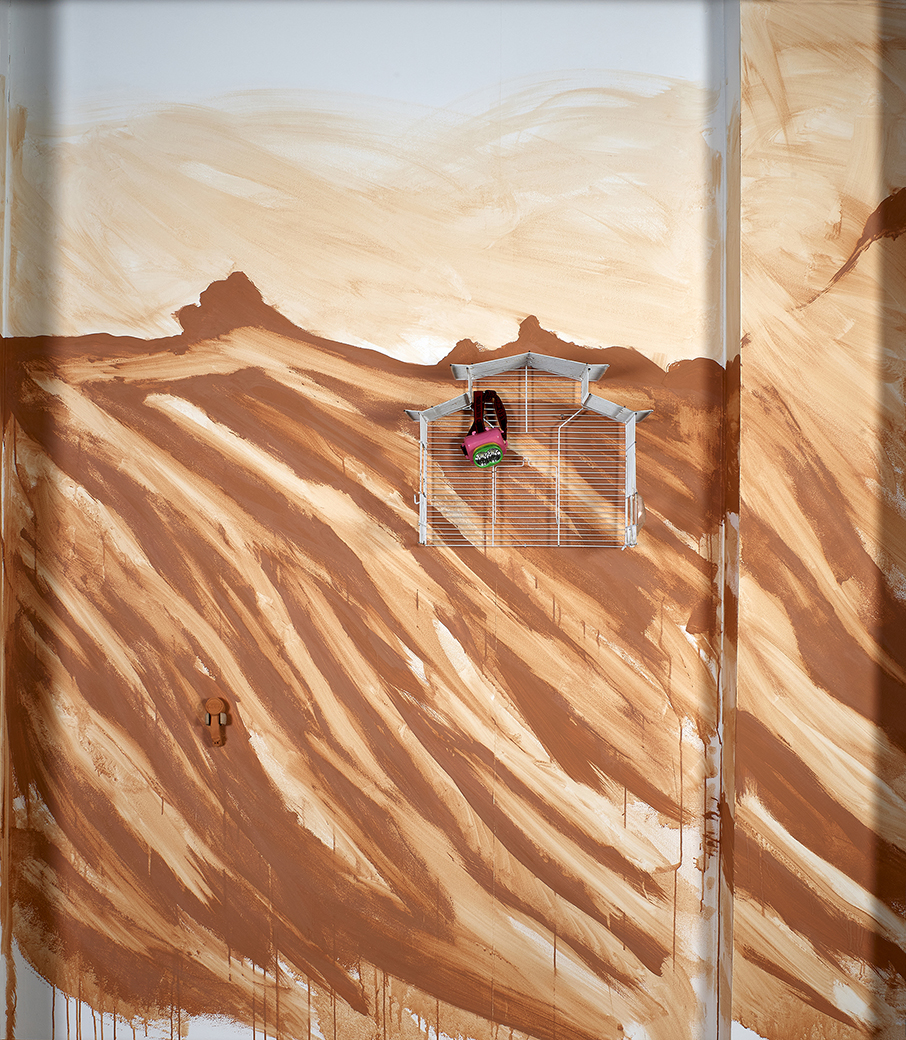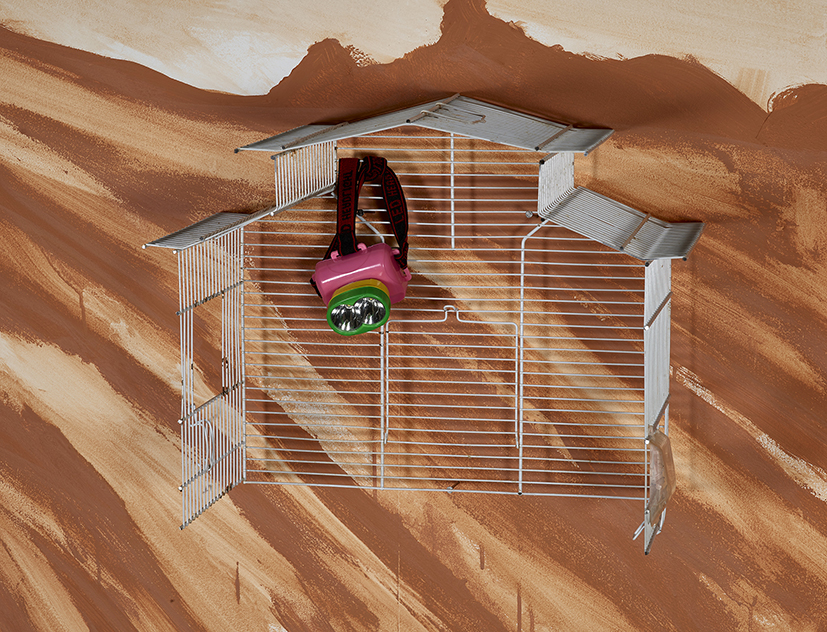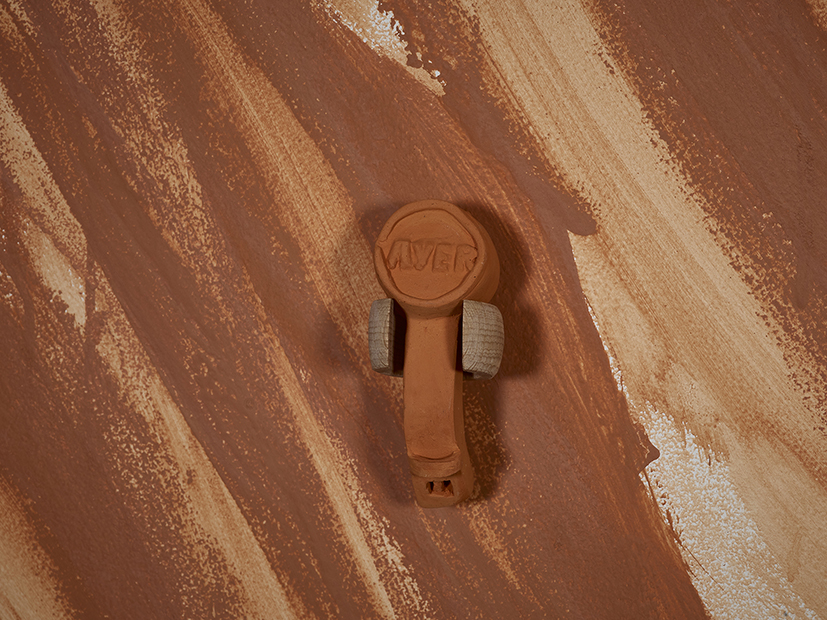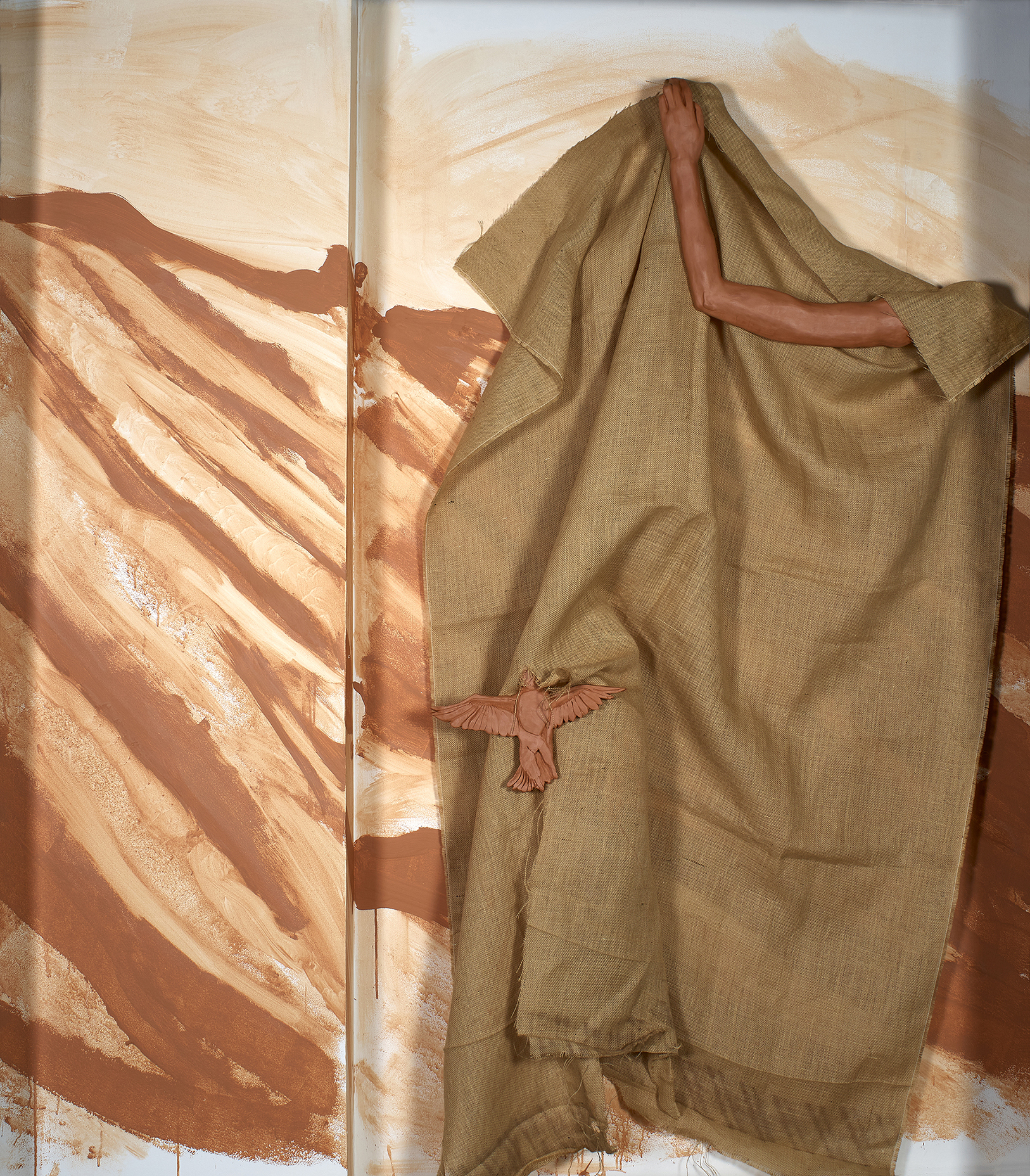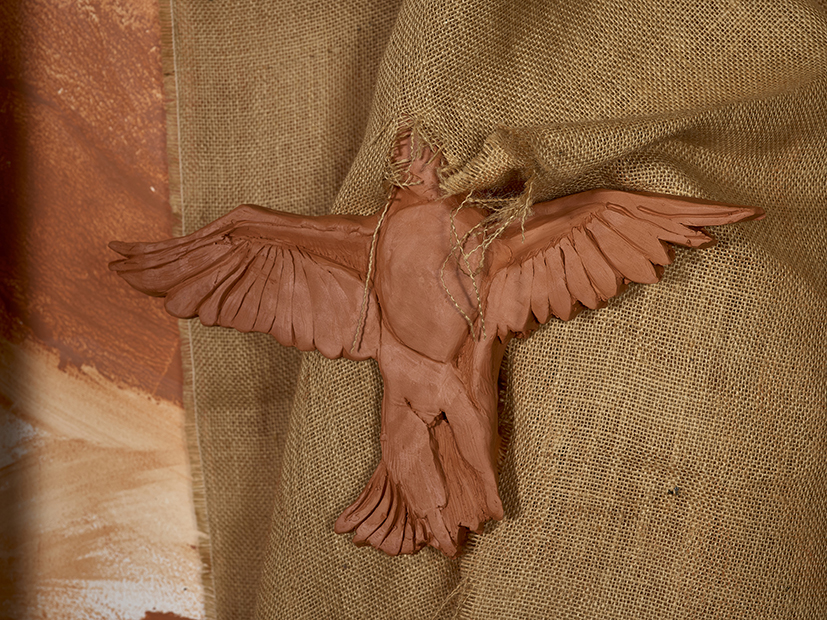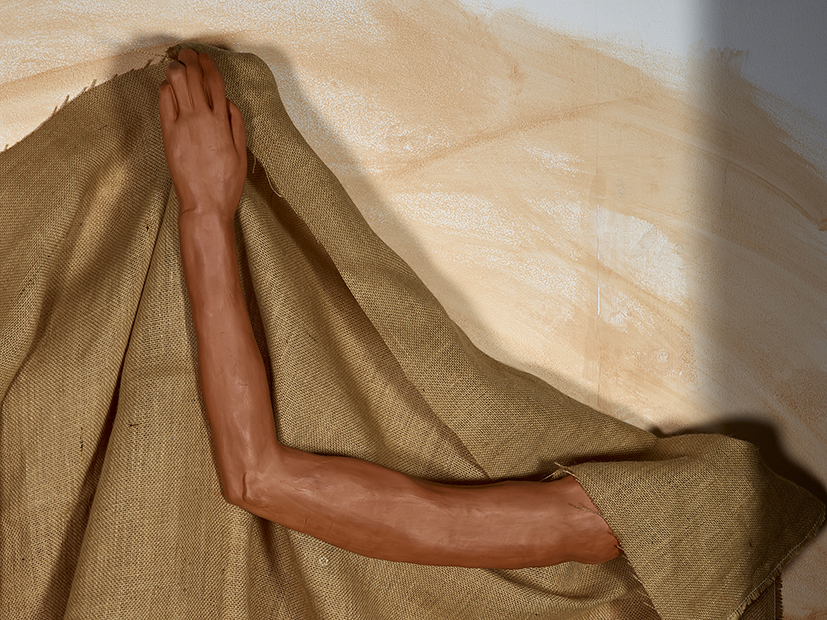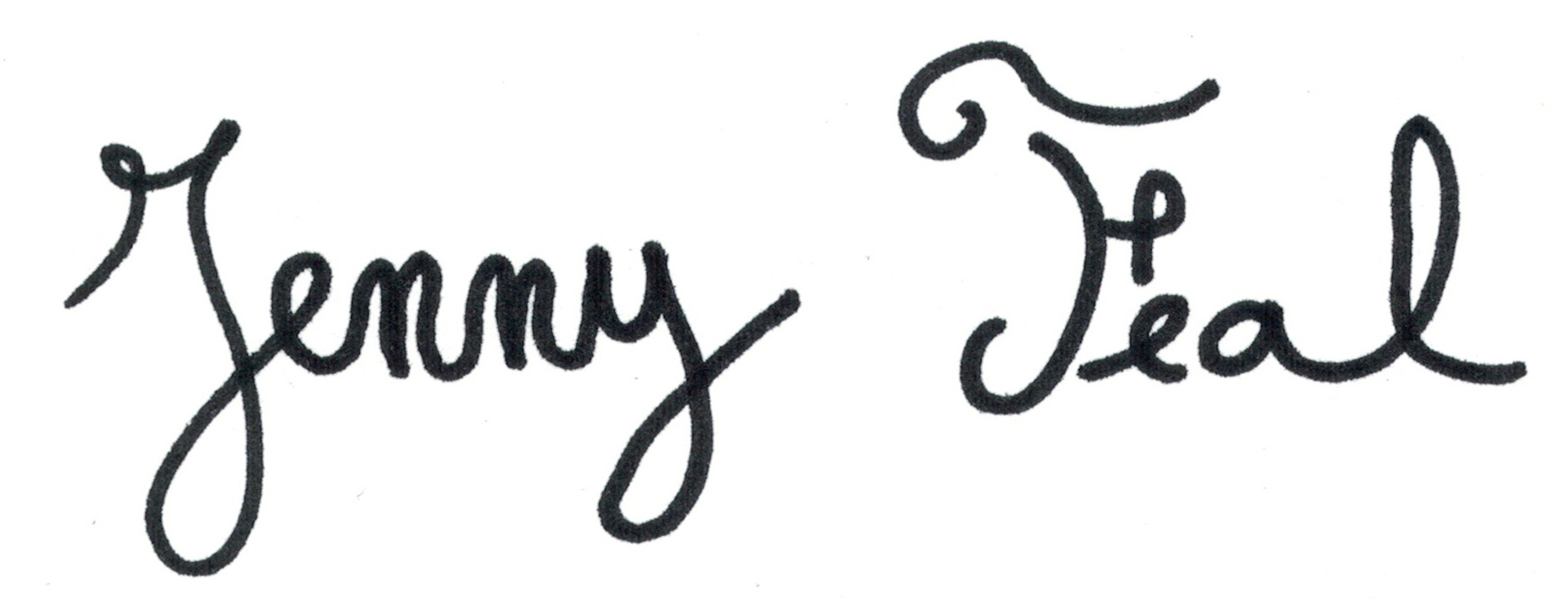Mountain climbing (Katanga)
glass, jute fabric, mural, clay, metal, wood, lamp
variable dimensions
Angelinna, Galeries Rivoli, Brussels, Belgium
2020
” Climbing the Mountain ”
The work of this young Cuban artist puts me, the almost old European woman, who, without really being aware of it, is steeped in progressive humanism and suspiciously colonial universalism, in front of my great questions as a teenager, to which it is probably not in vain to come back after a few years, with as much diligence as possible, to hope for the comfort that the sensation of a tiny answer could produce. Where does humanity come from? What is culture? What does the word nature mean? What was here before all this happened? Tim Ingold, in his book “Walking with the Dragons”, returns to a vision of Western anthropology and proposes, in particular to answer these questions, to replace the current articulation of technology-language-intelligence with another articulation, capable of bringing man out of his environment, which would be craftsmanship-imagination.
It appears that Jenny Feal begins by brushing her workspace with a mixture of raw earth and water. This is the genesis of a fluid process that leads to the gesture. Spreading, modelling, drawing, engraving, placing objects and creating relationships, that is to say imagination. Then everything is in place for the narrative. It would be a matter of telling, or even singing, with gentleness and poetry, and of stitching together stories that have frayed as a result of too many consecutive analyses and as a result of identities constructed in opposition to other identities. As if it were necessary first to recast landscapes fragmented by historical, political, ideological barriers. To find in the mud these beautiful naked stories, without face to face and therefore without modesty. These stories without stories, which arise from contact with the environment, are constructed in an immediacy in relation to others, with nature, with the materials present and available for manipulation, for assembly. Once continuity is found again, once the landscape of before is mended to that of after, once the songs of the past are literally fused in aluminum (a particularly conductive metal), then yes, we can climb the mountain again. From there it is possible to have a point of view and symbols can dress our practices. But now we will remember their vernacular fluidity.
Why do tales, cruel as they are, still manage to comfort us? Is it because they are listened to, thumb in mouth, beyond the words, eyes fixed on the mouth that articulates them? Is it because they retrace this tireless effort to tame a humanity that absolutely must extricate itself from all forms of “savagery”?
Cécile Colle
